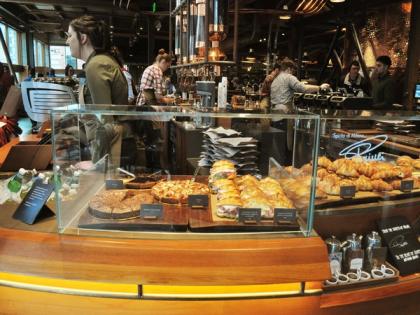Adding to economic fallout post Covid, American businesses say they won't be able to pay rents
By ANI | Published: June 5, 2020 10:09 AM2020-06-05T10:09:31+5:302020-06-05T10:20:07+5:30
In another major blow to the US economy, which has already been grappling with the economic fallout of virus crisis, American businesses have said the financial devastation from the shutdown has left them unable to pay their retail rents for months.

Adding to economic fallout post Covid, American businesses say they won't be able to pay rents
In another major blow to the US economy, which has already been grappling with the economic fallout of virus crisis, American businesses have said the financial devastation from the shutdown has left them unable to pay their retail rents for months.
Nearly half of commercial retail rents were not paid in May, as per reports cited by The Washington Post.
Some compes, as big as Starbucks, have warned they will not be able to pay rent for months.
According to the Post, the problem for the US economy is that when businesses like Ross Stores and T.J. Maxx stop paying rent, it sets off an alarming chain reaction. Landlords are now at risk of bankruptcy, as well. Commercial real estate prices are falling. Jobs at property management compes and landscapers face cuts.
Banks and private investors are unwilling to lend to most commercial real estate projects anymore, and cash-strapped city and local governments are realizing the property taxes they usually rely on from business properties are unlikely to be paid this summer and fall.
The situation has become especially dire for owners of hotels and malls. Such retailers as Bed Bath & Beyond, Famous Footwear, H&M, and the Gap, movie theatres AMC and Regal and gyms like 24 Hour Fitness stopped paying rent entirely in May, according to Datex Property Solutions. Starbucks paid May rent but also sent a letter to landlords requesting them to make concessions starting June 1 and continuing for 12 months.
Overall, Datex found that 58.6 per cent of retail rents were paid in May.
Office and warehouse tenants are still paying rent for now, but there remain concerns about whether tenants will renew leases as working from home gains in popularity.
"Social distancing means financial Armageddon for commercial real estate and municipalities in coming months," warned R. Christopher Whalen, head of Whalen Global Advisors, on his blog for investors. He also predicted that defaults could be worse than the peak losses of the early 1990s commercial real estate bust "by a wide margin."
The crisis is particularly threatening for tens of thousands of small businesses, some of whom operate on such small margins that they say they won't survive the pandemic recession if they have to pay rent right now.
Many small compes are also asking landlords for a break, but commercial properties often have a complex chain of owners. Getting them all to agree quickly is proving difficult.
Fewer than 40 per cent of commercial property loans are owned by banks, according to the Mortgage Brokers Association. The rest is in the hands of various life insurers, real estate investment trusts (REITs) and investors in commercial mortgage-backed securities, which is known as CMBS.
Typically, when businesses stop paying their rents and the building is ultimately owned by the investors of CMBS, and the tenants have to call a management company known as the special servicer.
Already, USD32 billion in CMBS loans have gone to special servicers, according to Moody's, and almost all have been hotels and retail properties. These servicing firms have little incentive to give tenants a break as they make money by tacking on extra fees and penalties.
As lawmakers are now trying to figure out how to prevent businesses, some landlords have already started urging local governments to delay property tax collections. But many municipalities are also financially strained as tax proceeds plunge and costs skyrocket during the pandemic.
Small-business advocates are pushing Congress to change the rules on Paycheck Protection Program loan forgiveness qualifications, so more than 25 per cent of the money can be used for rent and other overhead costs. The Trump administration that passed a bill passed last week allows up to 40 per cent of the money to go toward rent.
( With inputs from ANI )
Open in app